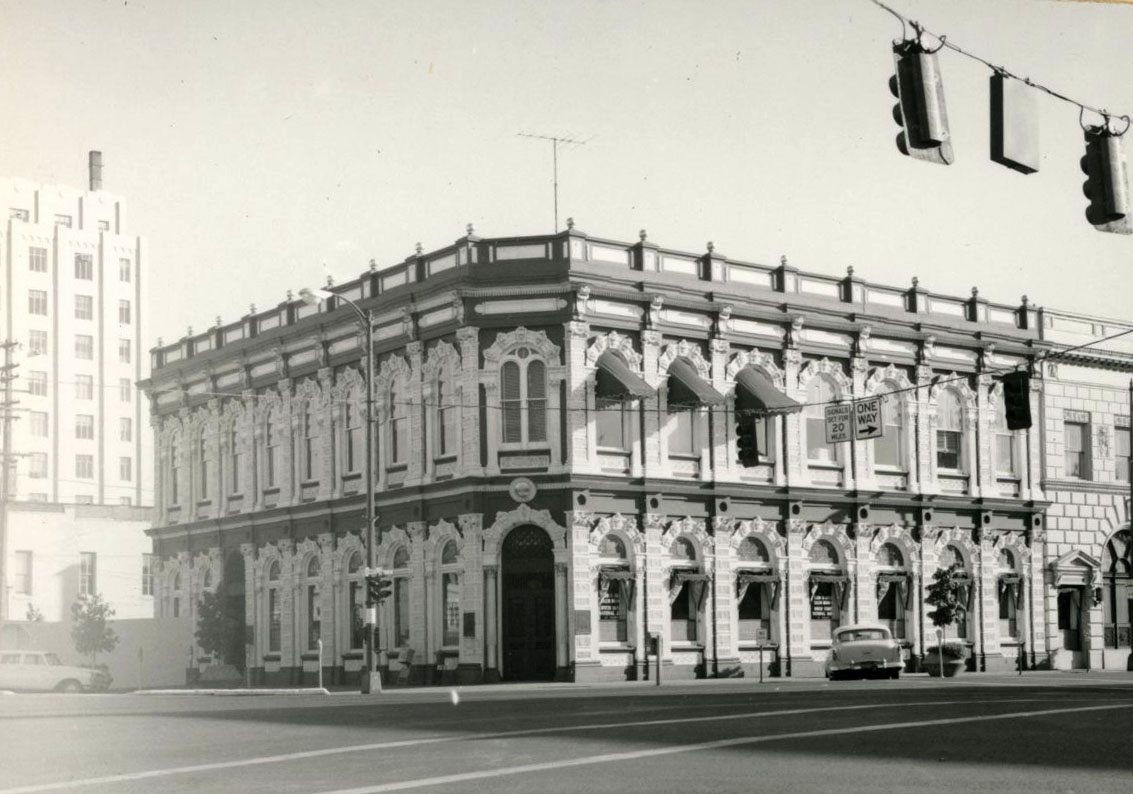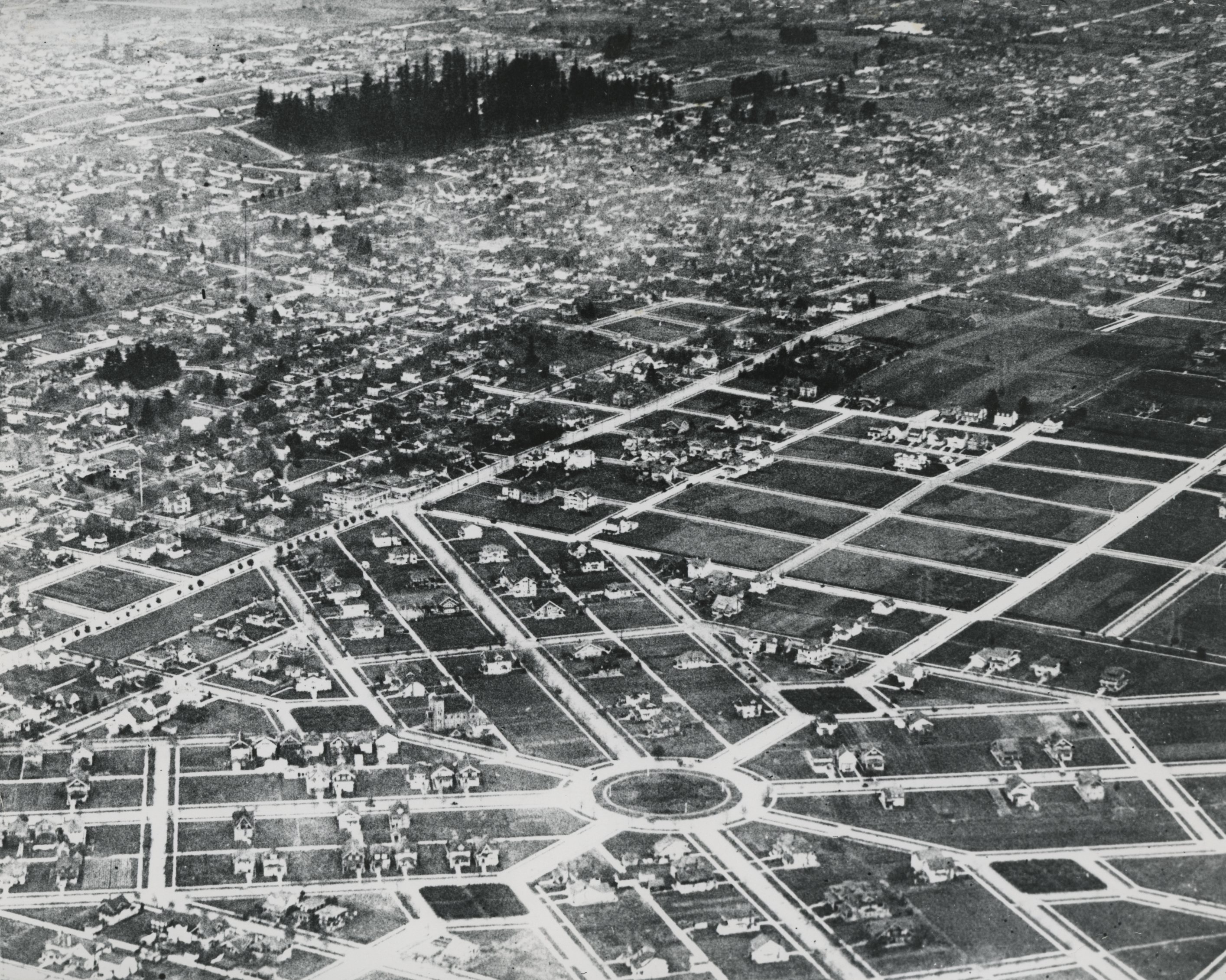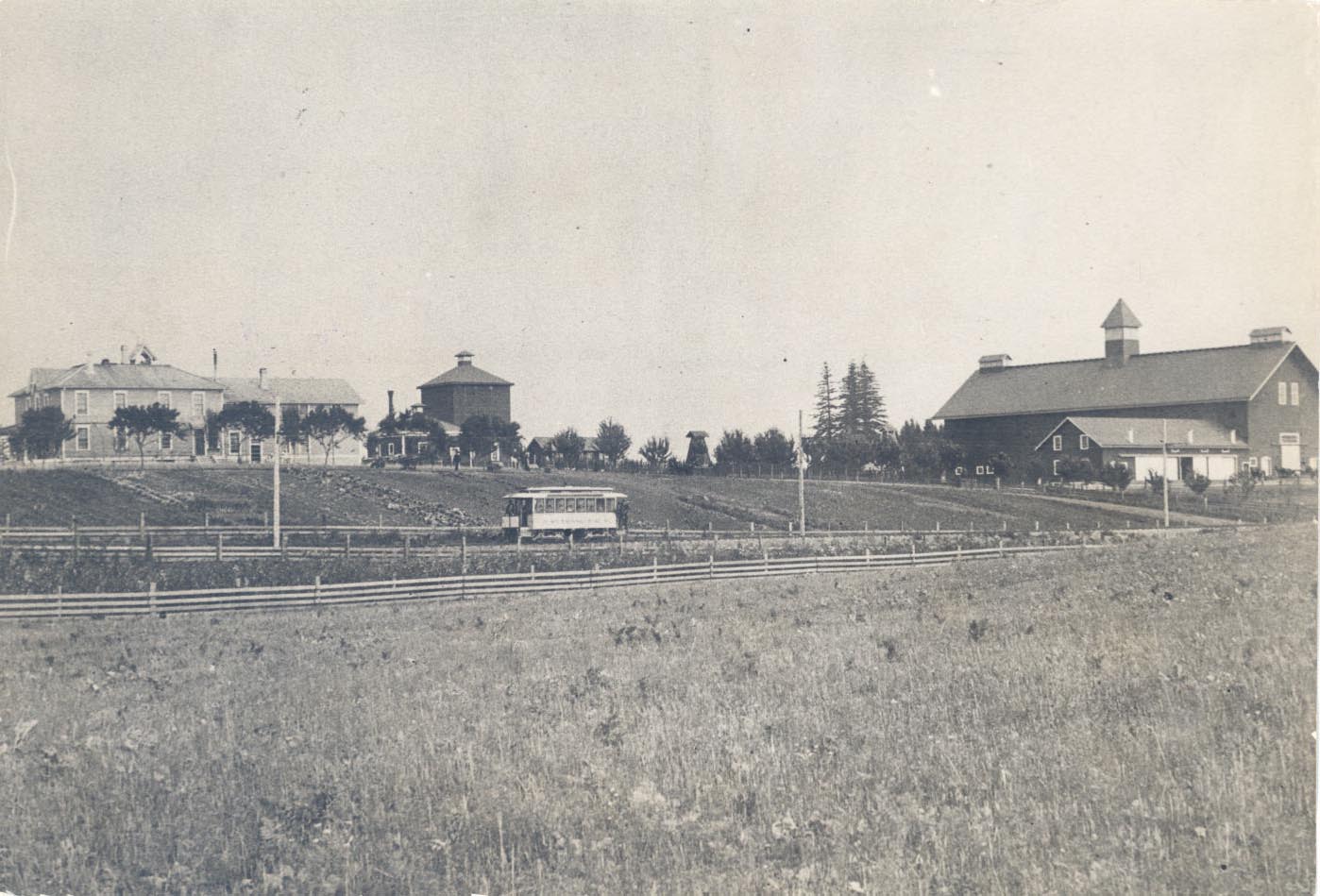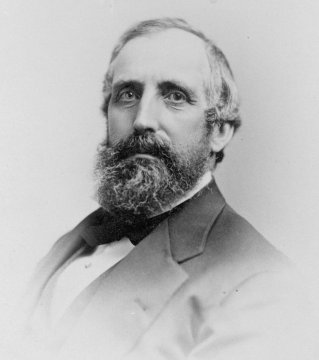At age twenty-seven, William Sargent Ladd was the youngest mayor to ever serve in Portland. Ladd is best known, however, for his business acumen, his philanthropy, and his civic involvement, and for the distinctive 128-acre Ladd's Addition in southeast Portland that he created in 1891.
As the city's fifth mayor in 1854-1855, Ladd oversaw the enactment of forty-two ordinances during his one-year, volunteer term—twice as many as his four predecessors together. His tenure brought relative calm to the disorganized on-again, off-again nature of early Portland government.
Four years later, Ladd was again elected mayor, this time against his wishes, to fill a six-month mayoral vacancy. His opponent was the feisty Oregonian editor Thomas J. Dryer, who had opposed the creation of Multnomah County, a measure that Ladd successfully championed before the territorial legislature.
Born in Holland, Vermont, on October 10, 1826, Ladd moved with his family to New Hampshire at age seven. His father was a prosperous physician and his mother part of a deep-rooted New England family. Ladd gained experience as a schoolteacher, farm laborer, and freight agent.
In April 1851, three months after the City of Portland was chartered by the territorial legislature, Ladd arrived in the city after sailing from New York to San Francisco and thence northward. A federal census taken the previous December credited Portland with a population of 821, the largest settlement in the Pacific Northwest.
Of limited means when he arrived, Ladd parlayed his small liquor consignment to over $1,000 within five months. He then hired on as a consignment agent for a friend of his father, W.D. Gookin, a merchant who had recently landed in Portland with a cargo of goods. After thirteen months, Ladd's net receipts had tripled to $3,000, which provided enough capital for him to set up his own store. The following year he persuaded his former schoolmate, Charles E. Tilton, a successful San Francisco businessman, to join him as a silent partner, which allowed W.S. Ladd and Company to expand its inventory.
In 1859, the two men founded the Ladd and Tilton Bank—Portland's first bank. Ten years later, Ladd co-founded the Ladd and Bush Bank of Salem with Salem mover and shaker Asahel Bush as his partner.
Business enterprises that Ladd helped found included the Portland Flour Mills, Oregon Iron Company, Oregon Steam Navigation Company, Oregon Central Railroad Company, Oregon Telegraph Company, Ladd and Reed Farm Company, Oregon Furniture Manufacturing Company, and the Portland Hotel. He was a reliable contributor to almost every civic endeavor. Early on, Ladd had committed to setting aside one-tenth of his income for charitable purposes.
Ladd also played a leadership role in the founding and succoring of the Library Association of Portland (he donated space for the public library in his handsome brick building for twenty-four years), River View Cemetery, and the Portland Water Commission, which brought "good, clean" drinking water from Bull Run to the city.
Ladd's habits of thrift and industry were legendary. At the same time, he was sometimes seen as haughty and strict about debts owed him, according to Judge Matthew Deady. Nevertheless, his obituary describes him as "plain, courteous, and unassuming."
During the one-year term he served as Portland mayor, Ladd journeyed to San Francisco to meet and marry Caroline Elliott, Tilton's cousin, the fiancée he had left behind in New Hampshire. The couple raised five children and lived the remainder of their lives in Portland. Ladd enthusiastically supported his wife's educational, charitable, and religious works and credited his success in life to her cooperation and sympathy.
In the 1880s, Ladd suffered from a growing paralysis in his legs, but he continued to oversee his many business enterprises and philanthropies. At the time of his death in 1893, his estate was estimated at $5 million, almost half in real estate holdings in Portland and Tacoma, Washington.
A gruesome footnote to Ladd's history occurred four years after his death. His grave at River View Cemetery was dug up and his body removed by robbers who intended to extract ransom from the Ladd family. The four men were later apprehended and served prison sentences. The Ladd family then built a concrete mausoleum for Ladd's remains.
-
![]()
Ladd & Bush Bank, southeast corner of State and Commercial, 1964.
Courtesy Oregon Hist. Soc. Research Lib., Cronise, photographer, 0334A055
-
![William S. Ladd]()
William S. Ladd.
William S. Ladd Courtesy Oregon State Library
-
![]()
Aerial view of Ladd's Addition, c.1915.
Courtesy Oregon Hist. Soc. Research Lib., 39917
-
![]()
Ladd building, Portland.
Courtesy Oregon Hist. Soc. Research Lib.
-
![Ladd farm, c. 1900, approximate site of present-day Coe Circle]()
Ladd farm, c. 1900.
Ladd farm, c. 1900, approximate site of present-day Coe Circle Courtesy Oreg. Hist. Soc. Research Lib., OrHi 104407
Related Entries
-
![Ladd Estate Company]()
Ladd Estate Company
The Ladd Estate Company played a major role in the residential developm…
-
![Ladd's Addition]()
Ladd's Addition
Ladd's Addition is a streetcar-era neighborhood in southeast Portland w…
-
![Oregon Steam Navigation Company]()
Oregon Steam Navigation Company
Among early business enterprises in Oregon, the Oregon Steam Navigation…
-
![Portland Hotel]()
Portland Hotel
The Portland Hotel (originally called the Hotel Portland), a project in…
Related Historical Records
Map This on the Oregon History WayFinder
The Oregon History Wayfinder is an interactive map that identifies significant places, people, and events in Oregon history.
Further Reading
Clark, Malcolm H., Jr. Eden Seekers: The Settlement of Oregon, 1818-1862. Boston: Houghton Mifflin Company, 1981.
Lansing, Jewel. Portland: People, Politics, and Power, 1851-2001. Corvallis: Oregon State University Press, 2005.
MacColl, E. Kimbark with Stein, Harry H. Merchants, Money and Power: The Portland Establishment, 1843-1913. Portland, Ore.: The Georgian Press, 1988.








